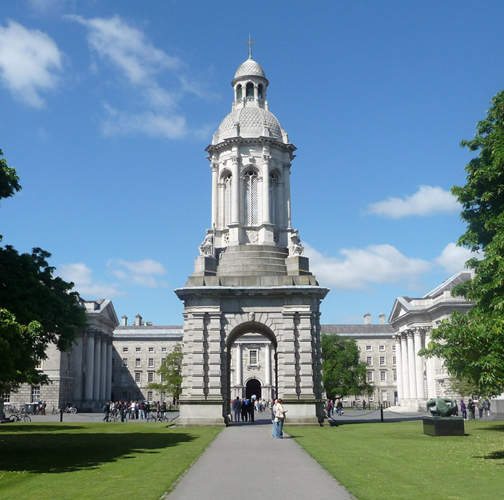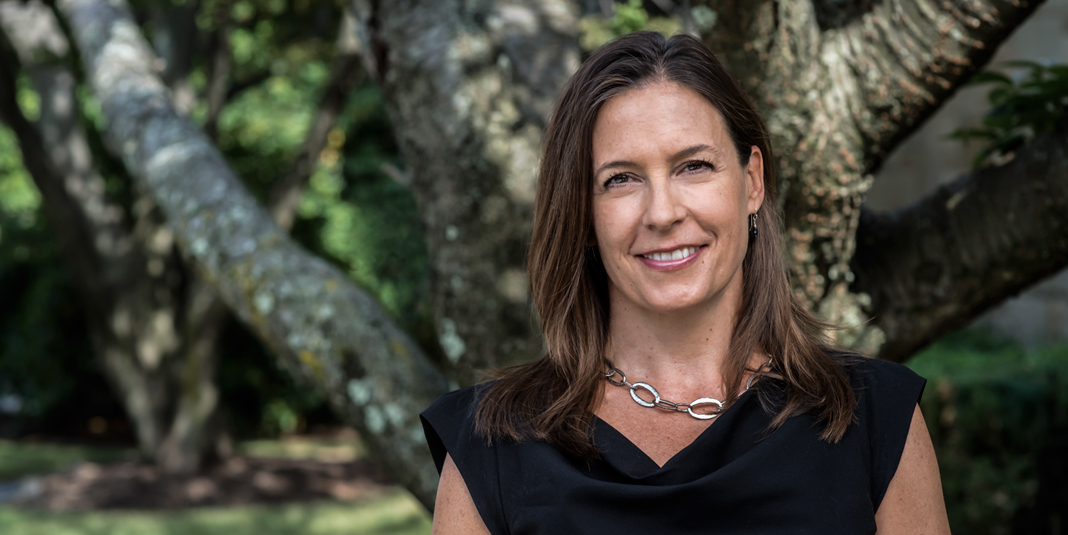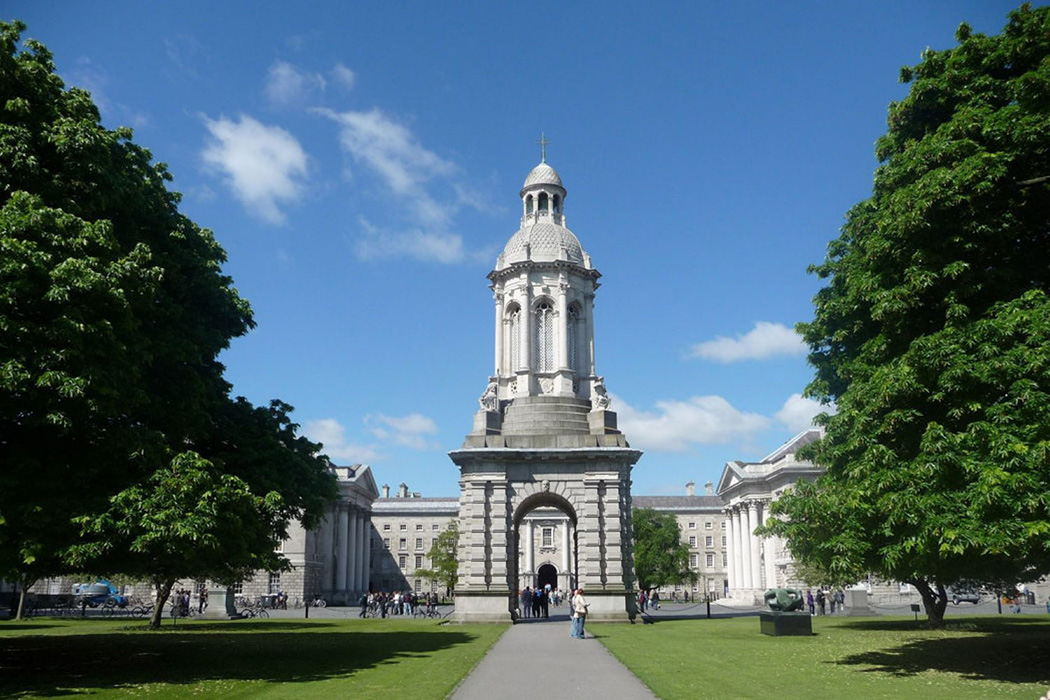
Trinity College Dublin.
Two students at the Boston College School of Social Work recently traveled to Dublin for a symposium on forced migration and then returned to campus with clearer pictures of their career paths and larger networks of potential mentors to help them achieve their professional goals.
Megan Taylor, Ph.D.’27, said that the symposium reaffirmed her commitment to addressing the mental health of migrants and refugees, a pair of populations that are particularly vulnerable to depression, anxiety, and post-traumatic stress disorder. As part of the conference, she made plans to collaborate with a psychology professor whose scholarship focuses on closing the research-to-practice gap within the field of global health.
Abygail Meeks, M.S.W.’25, said that the conference reinforced her desire to pursue a doctoral degree in psychology with an eye toward providing psychosocial support to migrants. She networked with a former physician for Doctors Without Borders at the event, saying that their conversation opened her eyes to the ways in which psychologists can deliver culturally competent care to refugees.
“This symposium was in perfect alignment with what I’m interested in doing,” said Taylor, a second-year student in the doctoral program. “One of the reasons that I chose BC for my Ph.D. is because it really does have a global focus,” she added. “Not only was I thrilled and grateful for the specific opportunity, but it was also a validation of my selection of BC to do my doctoral studies.”
Meeks, a final-year student in the three-year M.S.W. program, agreed with Taylor’s assessment of the symposium, which was co-hosted by BCSSW’s Research Program on Children and Adversity and the Trinity College Dublin Centre for Forced Migration Studies. “This experience,” she said, “really catapulted my interest in working with migrants.”
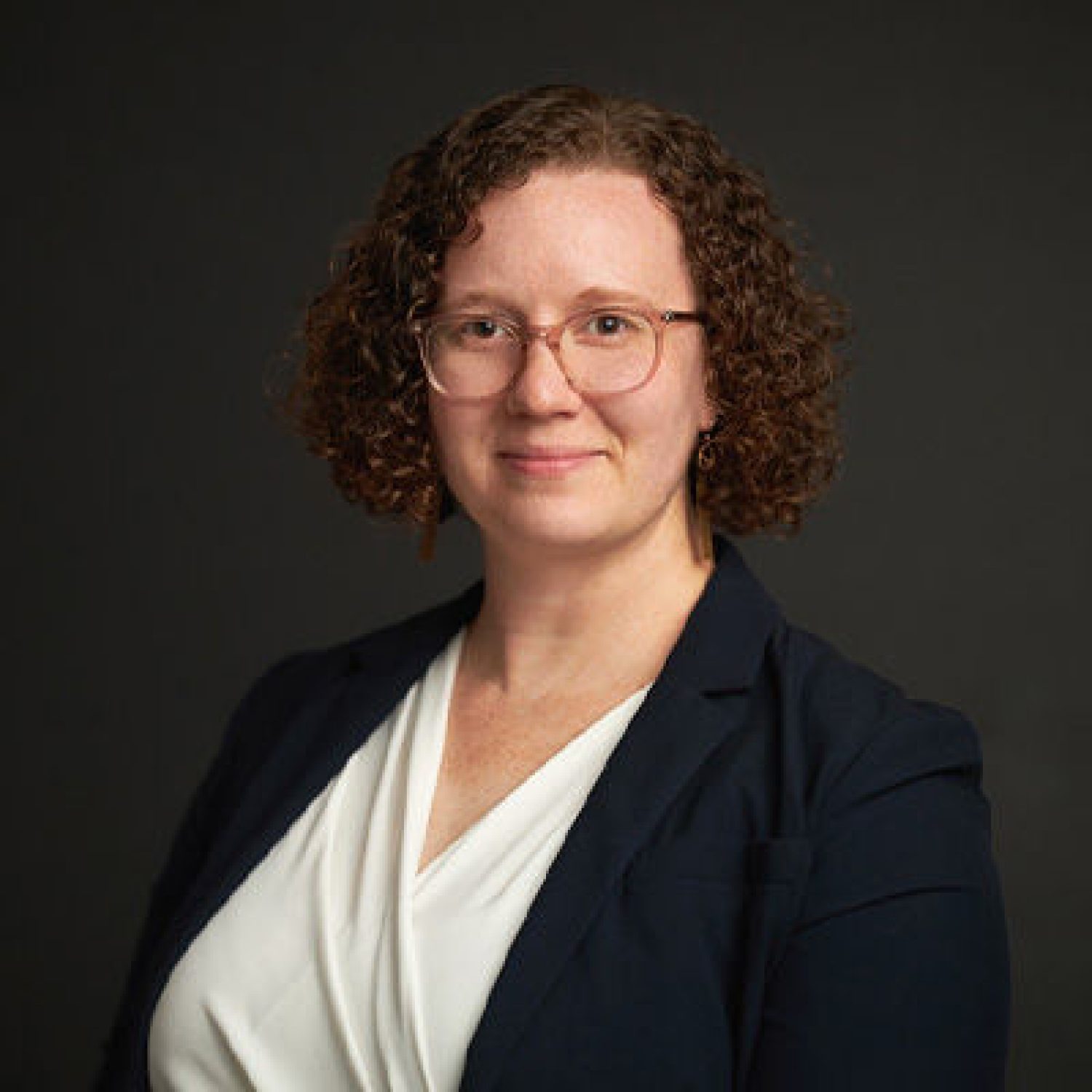
Megan Taylor.
Taylor and Meeks were among five BC students who received fellowships from the University’s Institute for the Liberal Arts to participate in the conference, which marked the latest outgrowth of a partnership between BC and Trinity that was formalized with a Memorandum of Understanding last summer.
The fellows spent two days in May discussing the spectrum of resources and services necessary to help forcibly displaced people remake their lives, working alongside a global network of more than 40 social workers, psychologists, and linguists from research institutions, community organizations, and international agencies such as UNICEF.
Taylor even moderated one of four panel discussions, “Implementation Science and Scaling Globally,” while Meeks facilitated a breakout session following the conversation.
Taylor said that she asked the panelists what it would take to improve the uptake of implementation science, the study of methods to promote the integration of evidence-based research into routine practice.
“One of the responses was that we needed to have a more centralized way to access implementation science findings and best practices,” said Taylor. “There are some journals that are exclusively focused on implementation science, but many are not, and right now it’s just very scattered.”
Meeks was surprised to hear that more than 114 million people have been forced to flee their homes as a result of persecution, conflict, violence, or human rights violations—the highest level of displacement on record.
“I knew it was a very large number,” said Meeks. “But it was shocking to hear experts in the field reveal just how many children and families have been forced to leave everything behind.”
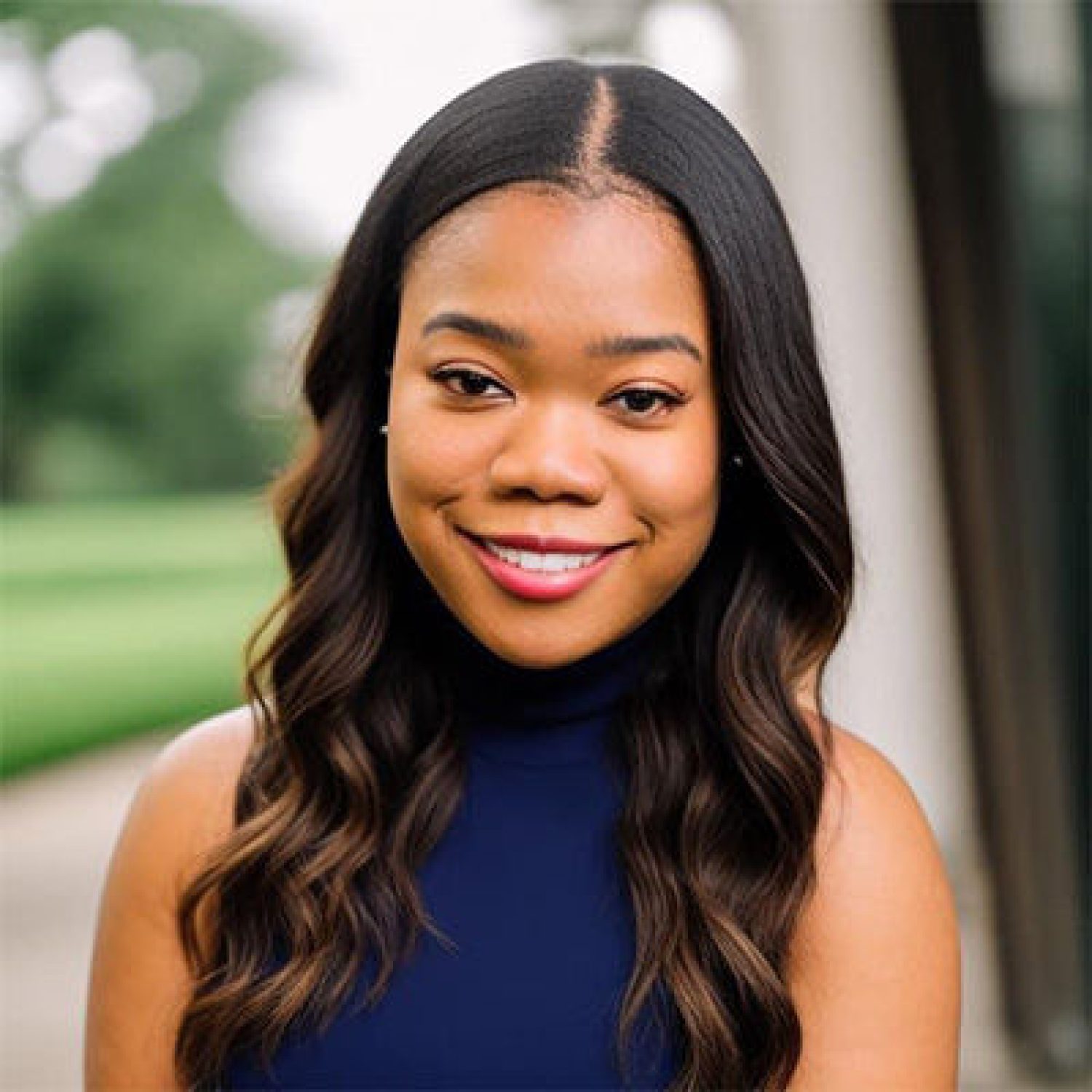
Abygail Meeks.
Her own mother was forced to move from Haiti to Brooklyn in the early ‘90s as a result of crime, a key factor that contributed to her interest in working with immigrants. But she was also touched by the personal story of University of California San Diego Professor Tala Al-Rousan, an immigrant from Jordan who is now studying how living in a refugee camp affects cognitive function.
Meeks listened to Al-Rousan reflect on her journey on a panel, “Lived Experience and Participatory Research Approaches,” and then exchanged contact information with the professor, who’s also volunteered as a physician at a refugee camp in Jordan.
She envisions herself working as a psychologist at a refugee camp, supporting the health and well-being of people whose lives have been turned upside down by circumstances out of their control.
“There’s a shortage of psychologists working with migrants, and that’s something I’m very interested in,” Meeks said. “It’s such a necessary field.”
Taylor formed a potential research partnership with Frédérique Vallieres, director of the Centre for Global Health at Trinity College Dublin.
As they discussed the nuts and bolts of their research, Taylor realized that Vallieres had some data about a program focused on supporting the educational needs of child refugees that she could use. One of Vallieres' student-researchers shared the data with Taylor, and now the two parties are talking about future collaborations.
“There are different things that you can learn from traveling and from networking and from getting perspectives from people outside of your own university,” said Taylor. “Experiences like this, especially for the type of research that I want to do, are really instrumental to learning and growth for me.”



